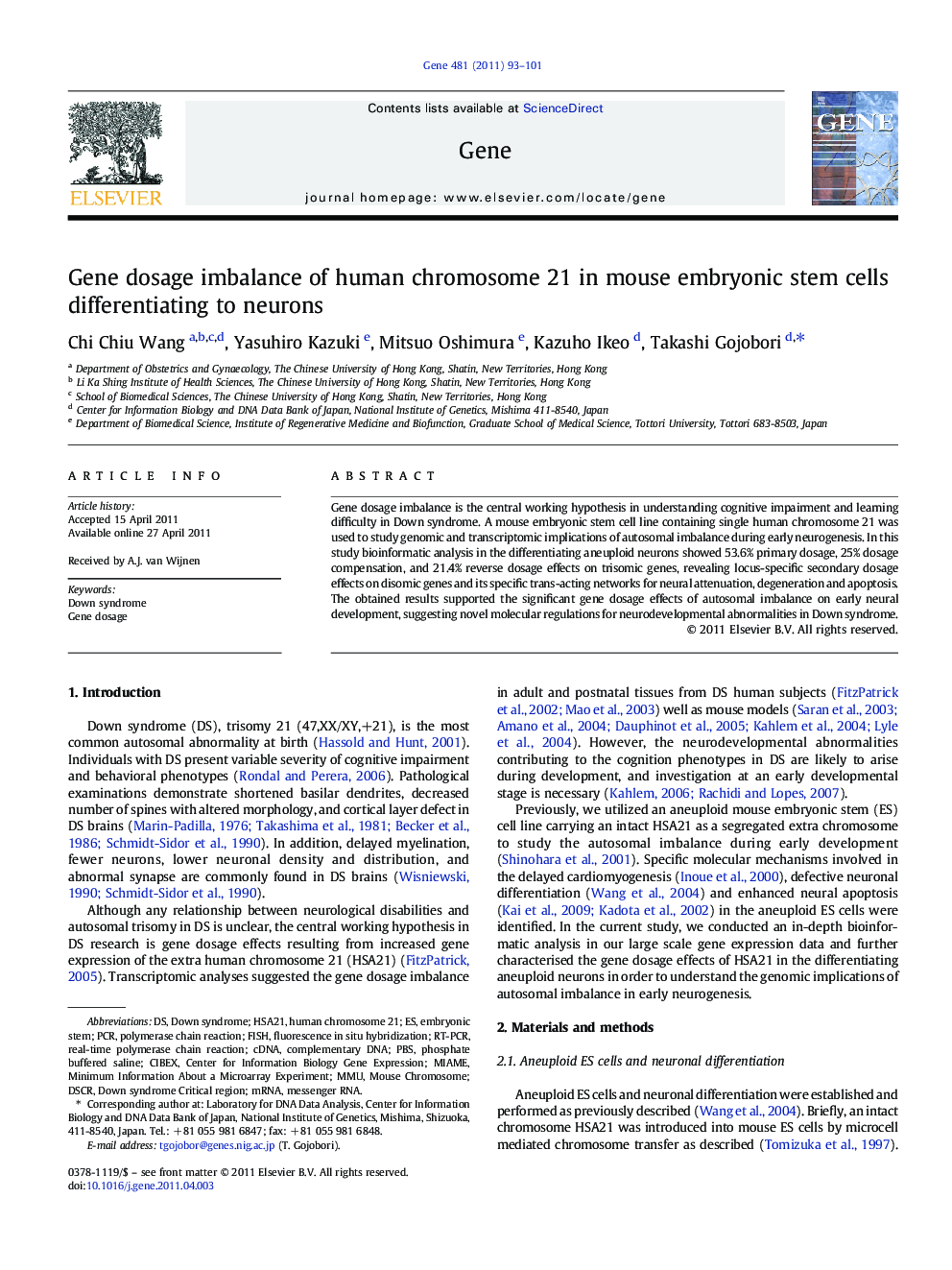| Article ID | Journal | Published Year | Pages | File Type |
|---|---|---|---|---|
| 2818374 | Gene | 2011 | 9 Pages |
Gene dosage imbalance is the central working hypothesis in understanding cognitive impairment and learning difficulty in Down syndrome. A mouse embryonic stem cell line containing single human chromosome 21 was used to study genomic and transcriptomic implications of autosomal imbalance during early neurogenesis. In this study bioinformatic analysis in the differentiating aneuploid neurons showed 53.6% primary dosage, 25% dosage compensation, and 21.4% reverse dosage effects on trisomic genes, revealing locus-specific secondary dosage effects on disomic genes and its specific trans-acting networks for neural attenuation, degeneration and apoptosis. The obtained results supported the significant gene dosage effects of autosomal imbalance on early neural development, suggesting novel molecular regulations for neurodevelopmental abnormalities in Down syndrome.
Graphical abstractFigure optionsDownload full-size imageDownload high-quality image (146 K)Download as PowerPoint slideResearch highlights► Cognitive and behavioral impairment is a common feature of Down syndrome. ► Gene dosage imbalance is associated with the neurodevelopmental abnormalities. ► Primary and secondary dosage occur in differentiating aneuploid neurons. ► Significant dosage compensation and reverse dosage are also identified. ► Gene dosage effects of autosomal imbalance is confirmed in early neural development.
